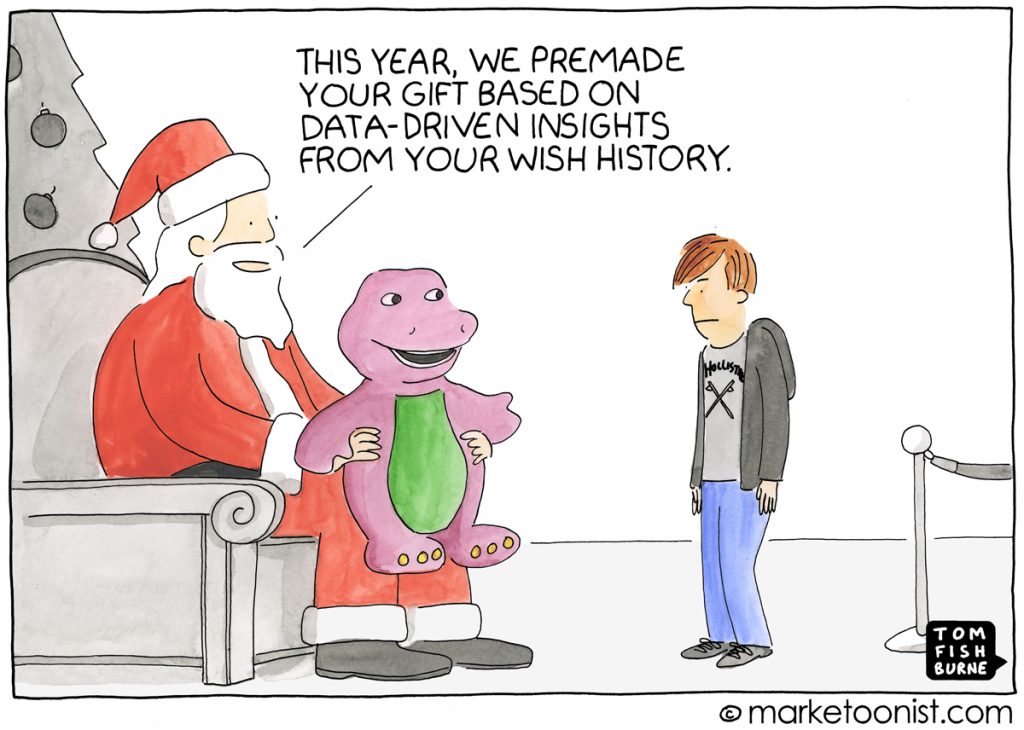In the last ten years, customer expectations have skyrocketed, and businesses are constantly seeking innovative ways to provide personalized experiences. With the advent of artificial intelligence (AI), companies now have a powerful tool at their disposal to revolutionize the customer journey. AI enables businesses to gather vast amounts of data, analyze it in real-time, and deliver tailored experiences that resonate with individual customers. In this blog post, we will explore how AI can be used to personalize the customer journey, leading to improved customer satisfaction, loyalty, and business growth.

Data Collection and Analysis:
At the core of personalization lies data. AI empowers businesses to collect and analyze customer data on a massive scale. By leveraging various sources such as transaction history, browsing patterns, social media interactions, and demographic information, AI algorithms can extract valuable insights about customers’ preferences, behaviors, and needs. This data-driven approach enables businesses to understand customers on a granular level, facilitating the creation of personalized experiences.
Predictive Analytics:
AI’s predictive capabilities are a game-changer for personalization. Machine learning algorithms can analyze historical data to identify patterns and predict future customer behavior. By utilizing predictive analytics, businesses can anticipate customer needs, tailor product recommendations, and offer personalized promotions at the right time. For instance, an e-commerce platform can use AI algorithms to suggest relevant products based on a customer’s browsing history and previous purchases, enhancing the chances of conversion and customer satisfaction.
Intelligent Chatbots:
AI-powered chatbots are revolutionizing customer interactions. These intelligent virtual assistants can engage with customers in real-time, answering queries, providing product information, and offering personalized recommendations. Natural Language Processing (NLP) algorithms enable chatbots to understand and respond to customers’ queries in a human-like manner, enhancing the overall customer experience. Through machine learning, chatbots can learn from each customer interaction, continuously improving their responses and personalization capabilities.
Dynamic Content and Recommendations:
AI enables businesses to dynamically generate and display personalized content and recommendations across various customer touchpoints. By analyzing customer data, AI algorithms can determine the most relevant content to show to each individual. For instance, an online news platform can personalize article recommendations based on a user’s reading history and interests. This level of personalization increases engagement, drives conversions, and enhances customer satisfaction.
Sentiment Analysis and Feedback:
Understanding customer sentiment is crucial for personalization. AI-powered sentiment analysis algorithms can assess customer feedback, social media posts, and reviews to gauge customer satisfaction levels. By analyzing sentiment, businesses can identify areas for improvement, address customer concerns, and take proactive measures to enhance the overall customer experience. This feedback loop further fuels the AI system, allowing it to refine its personalization strategies.
Hyper-Personalized Marketing:
AI enables businesses to deliver hyper-personalized marketing campaigns. By combining customer data, predictive analytics, and dynamic content generation (Generative AI), AI algorithms can create individualized marketing messages tailored to each customer’s preferences, needs, and purchasing habits. Personalized marketing not only improves conversion rates but also fosters a stronger emotional connection with customers, leading to increased brand loyalty.
The customer journey is no longer a one-size-fits-all experience. AI has opened up new possibilities for businesses to personalize interactions, creating unique and tailored experiences for each customer. By leveraging AI’s capabilities in data analysis, predictive analytics, chatbots, dynamic content, sentiment analysis, and hyper-personalized marketing, businesses can stay ahead of the competition, drive customer satisfaction, and foster long-term loyalty. Embracing AI-driven personalization is not just a trend; it’s a necessity in today’s customer-centric landscape.




